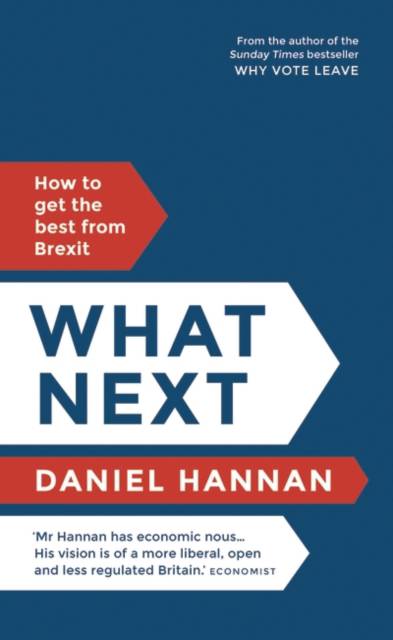
- Afhalen na 1 uur in een winkel met voorraad
- Gratis thuislevering in België vanaf € 30
- Ruim aanbod met 7 miljoen producten
- Afhalen na 1 uur in een winkel met voorraad
- Gratis thuislevering in België vanaf € 30
- Ruim aanbod met 7 miljoen producten
Zoeken
Omschrijving
On June 23, 2016, against all forecasts, Britain voted to leave the EU. Drawing on his experiences at the heart of the campaign, Daniel Hannan dissects the result and our reaction. He outlines why Vote Leave won, exploring what people were voting for and what they weren't. He looks at the immediate aftermath--how it differs from what people expected and what it says about where to go next. Brexit, Hannan points out, is a process--not an event--with three key areas of consideration: the UK's relationship with the remaining 27 EU states; their relationship with the rest of the world; and, crucially, their consequent domestic reforms--there is no point to Brexit if they don't now tackle the threats to democracy of corporatism and lobbying. What Next is Hannan's blueprint for a successful Brexit. A Brexit that addresses the concerns of the 48% who voted Remain as well as of the 52% who voted Leave, a Brexit that revitalizes British democracy, and a Brexit that will be mutually beneficial for both Britain and Europe.
Specificaties
Betrokkenen
- Auteur(s):
- Uitgeverij:
Inhoud
- Aantal bladzijden:
- 240
- Taal:
- Engels
Eigenschappen
- Productcode (EAN):
- 9781786691934
- Verschijningsdatum:
- 1/02/2017
- Uitvoering:
- Hardcover
- Formaat:
- Genaaid
- Afmetingen:
- 127 mm x 216 mm
- Gewicht:
- 426 g

Alleen bij Standaard Boekhandel
+ 27 punten op je klantenkaart van Standaard Boekhandel
Beoordelingen
We publiceren alleen reviews die voldoen aan de voorwaarden voor reviews. Bekijk onze voorwaarden voor reviews.











